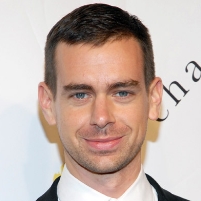Did Saudi Prince’s Investment Lead Twitter to Please Dictatorships by Allowing Government Censorship?
Monday, January 30, 2012
 Jack Dorsey
Jack Dorsey
Just a month after Saudi Prince Alwaleed bin Talal invested $300 million in social networking company Twitter, it announced that it would begin censoring content, alarming free speech advocates around the world. In a public blog post, ironically titled “Tweets Still Must Flow,” Twitter explained that it now has the technical ability, which it previously lacked, to block content on a country by country basis. This will enable Twitter to consider requests from individual governments to censor content they dislike while permitting access to users in other countries. Although Twitter clarified that it “will withhold specific content only when required to do so in response to…a valid and applicable legal request,” it is not clear how Twitter would decide if a request was valid or legal.
The Saudi connection is a reminder of how activists last year used Twitter, as well as other social network sites like Facebook, to communicate and organize protest activities in countries like Egypt, Tunisia, Saudi Arabia and China. In the last two places, government authorities reacted by blocking access within their borders, and were able to crush dissident movements. China even put the name of then-U.S. Ambassador Jon Huntsman on a list of forbidden search terms when he turned up at a protest site suggested on social media.
Free speech activists criticized Twitter’s move and urged it to reconsider. Reporters Without Borders, for example, whose 2011-12 Press Freedom Index highlighted anti-journalist clampdowns worldwide, sent a letter urging Twitter chairman Jack Dorsey to reconsider the announcement, saying that, “By finally choosing to align itself with the censors, Twitter is depriving cyberdissidents in repressive countries of a crucial tool for information and organization.”
In contrast, Cindy Cohn, legal director of the anti-censorship group, The Electronic Frontier Foundation, said she was “a little puzzled by the kind of freak out that kind of appears to be happening. Companies have to abide by the law where they are.” Twitter has emphasized that it does not intend to pre-filter content, only to remove content in response to government requests, and that it will post notices that content has been removed.
However, Prince Alwaleed bin Talal’s home, Saudi Arabia, is, like China, ruled by a harsh dictatorship that censors other forms of media and free speech.
-Matt Bewig
Uproar Follows as Twitter Ponders Censorship (by Adam Klasfeld, Courthouse New Service)
Twitter to Censor Tweets Country-by-Country (by Kevin Dolak and Ned Potter, ABCNews)
Twitter Censorship Move Sparks Backlash: Is It Justified? (by David Kravets, Wired)
Twitter Sells Stake to Murdoch-Linked Saudi Prince (by Mark Sweney, The Guardian)
Frightened Chinese Communists Block More Search Terms…Including Name of U.S. Ambassador (by Noel Brinkerhoff, AllGov)
- Top Stories
- Unusual News
- Where is the Money Going?
- Controversies
- U.S. and the World
- Appointments and Resignations
- Latest News
- Can Biden Murder Trump and Get Away With it?
- Electoral Advice for the Democratic and Republican Parties
- U.S. Ambassador to Greece: Who is George Tsunis?
- Henry Kissinger: A Pre-Obituary
- U.S. Ambassador to Belize: Who is Michelle Kwan?






Comments